AI Client


We designed the Bogotá Chamber of Commerce’s first conversational AI solution to handle natural language queries and generate personalized service recommendations, simplifying access to information and services while improving trust and institutional perception.


97%
task completion success rate during usability testing.
90%
positive perception of proactive system recommendations during testing.
Methodology












Boom!
User test
Prototipes
Wireframes
Interviews
UX Research
The problem
The Bogotá Chamber of Commerce faces user experience challenges that affect the perception and adoption of its services. On WhatsApp, 7 out of 10 detractors attribute their negative ratings to issues with the information received and long wait times. In addition, 56.1% of entrepreneurs are unaware of the CCB’s service offering, and approximately 8 out of 10 have not used resources due to lack of information.
The challenge
Design and implement the institution’s first AI solution to respond to natural language queries and recommend personalized services based on the user’s profile, aligning user expectations with the CCB’s digital strategy. The challenge was to create an intuitive, reliable, and scalable experience for more than 650,000 active entrepreneurs.
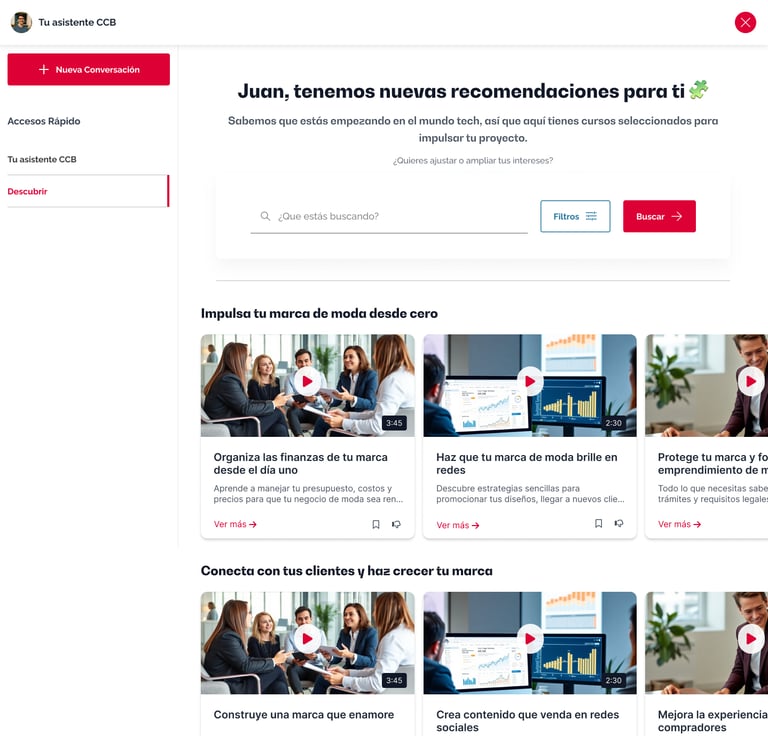

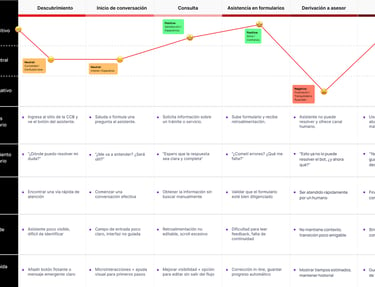

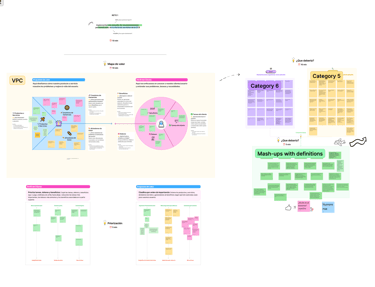

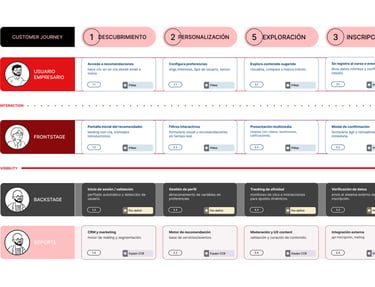

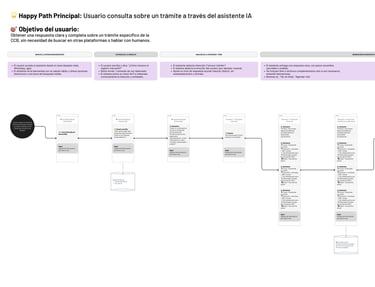

Strategic research & discovery
I led discovery sessions with stakeholders from different areas to map needs, expectations, and priority use cases. We conducted in-depth interviews with entrepreneurs to understand their perception of AI tools, information search patterns, and friction points in the current experience. Some findings revealed a lack of trust in data accuracy, the need for more intuitive queries, and a demand for personalization based on business profiles.
We complemented this research phase with a competitive benchmark analyzing solutions such as ChatGPT, Gemini, Netflix, and Amazon to identify best practices in natural language processing, personalization, and conversational design.


Information architecture
I facilitated co-creation workshops that resulted in three product concepts: Orion (cognitive AI with a robust knowledge base), Llave mIA (personalized coach assistant), and ConexIA (intelligent multichannel platform). A collective voting process defined OrionXIA as the MVP, combining the best features of each concept.
I structured use cases segmented by business profiles (entrepreneurs, new, mature, inactive) and defined conversational flows for different scenarios and their integration across multiple channels where user interactions could begin or end. We defined the content scope for both products based on data collected from various channels regarding the most frequent user queries.
Prototyping and iterative validation
I developed functional prototypes for two main solutions: a web conversational assistant (MVP) and a WhatsApp assistant (Release) with natural language processing, along with a personalized dashboard featuring intelligent service recommendations. The prototypes included device-adapted interfaces, a quick-response system, and intelligent error handling.
I conducted remote usability tests using Maze and moderated sessions with users. The conversational assistant achieved a 97% task completion success rate, with high user ratings for clear language and empathetic tone. The recommendation system reached 90% effectiveness and 4.8/5 points for visual appeal, although it revealed the need for more intuitive filters due to a 67% misclick rate.
Based on these findings, I refined flows, nomenclature, and confirmation screens to deliver a smoother experience before the development phase.
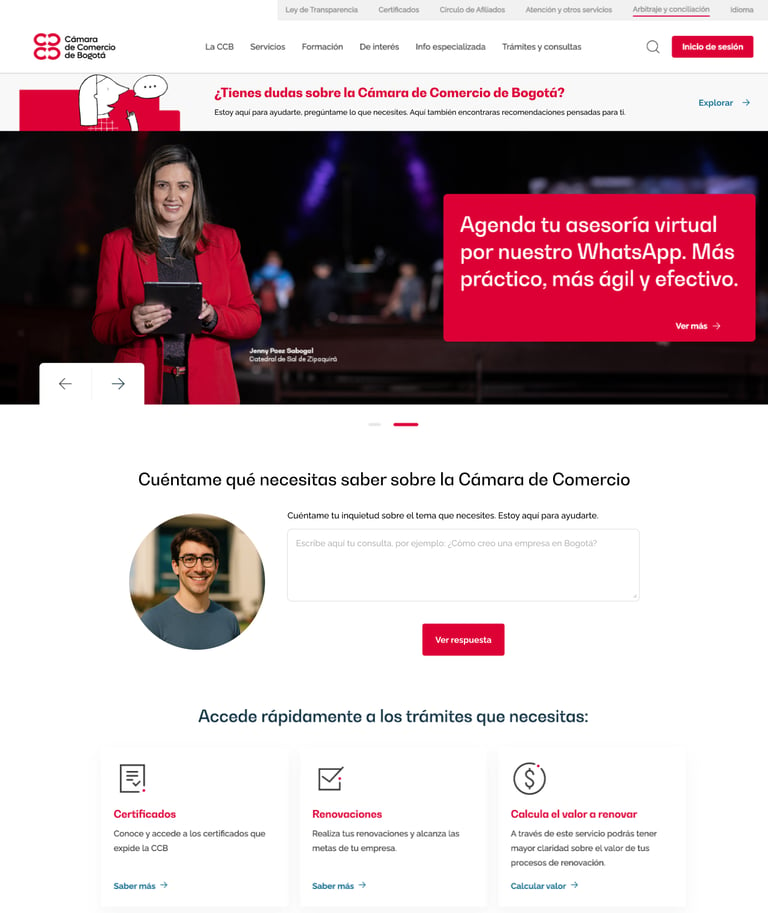

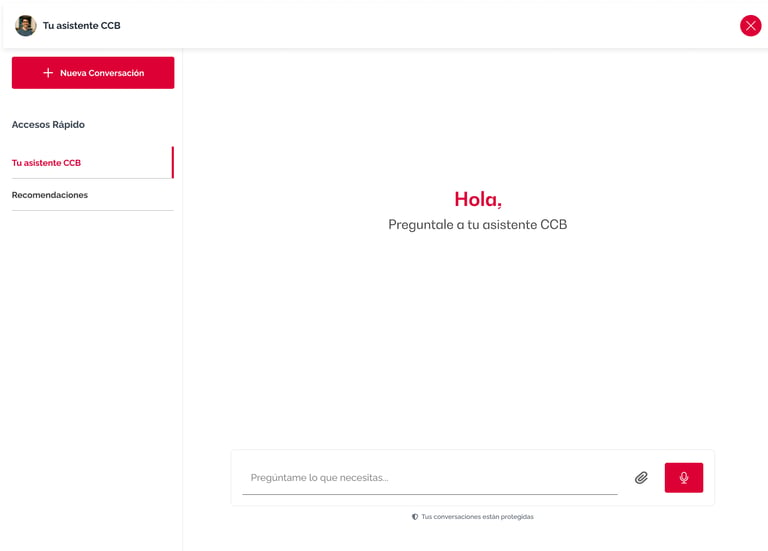



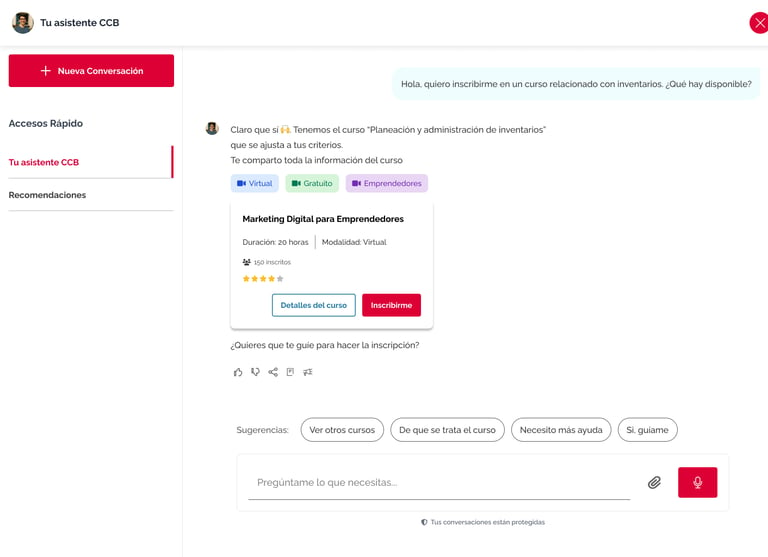

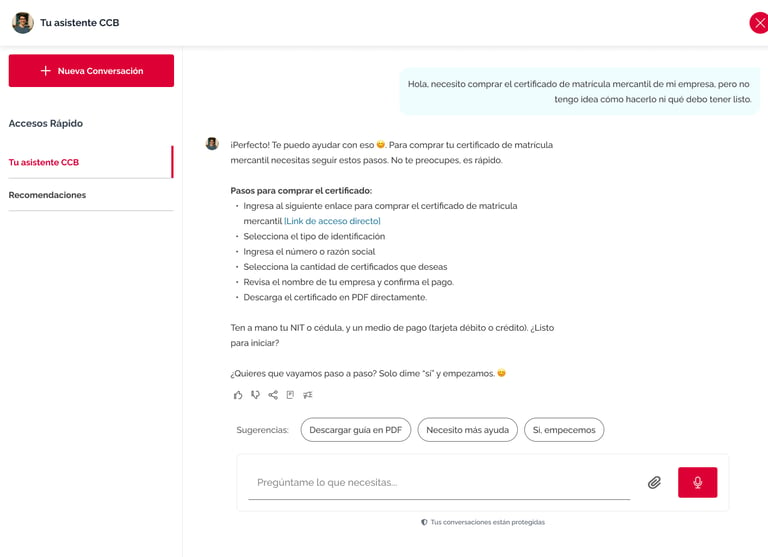

Stakeholder facilitation and alignment
I led multidisciplinary workshops with stakeholders from GAC, Registral Services, Digital Channels, Analytics, and User Experience to align the technical vision with user needs. I applied design thinking methodologies and impact-effort matrices to prioritize MVP features and define the release roadmap.
I created the necessary technical documentation for development: detailed user stories, service blueprints, customer journey maps, and design specifications. I also developed a functional demo presented to the executive committee, enabling them to understand the value and expected impact, which supported the development contracting process.
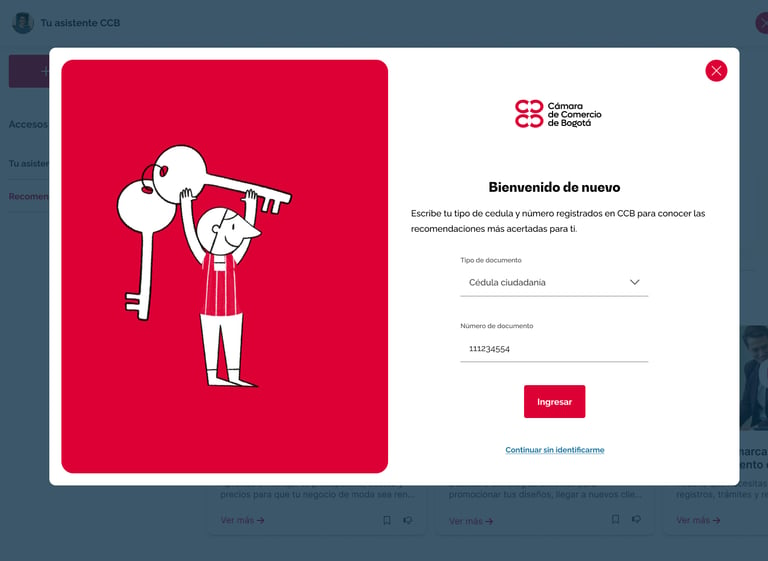



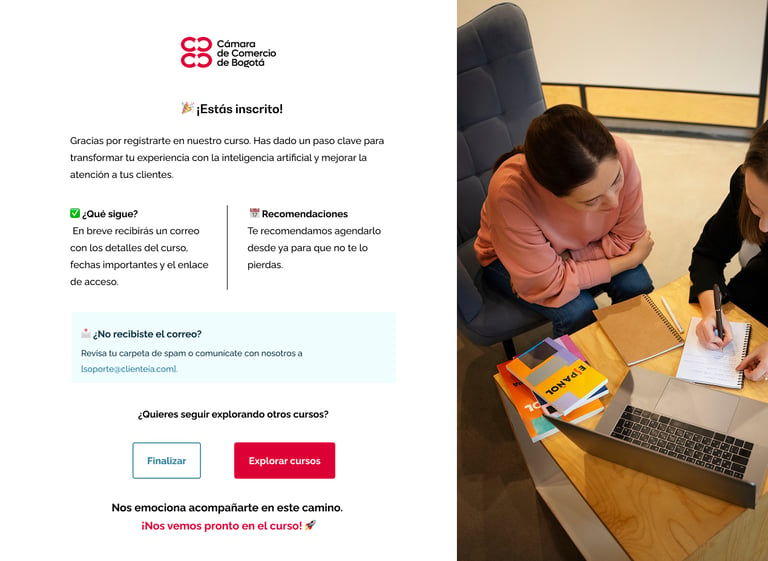

Long-Term impact
The designed solutions laid the foundation for transforming the user experience at CCB. A significant increase is projected in the self-management rate of queries on WhatsApp and the web, as well as in the adoption of non-registral services, which are currently unknown to more than 60% of entrepreneurs.
The project generated key organizational capabilities: the institution’s first AI implementation, a replicable methodology for future innovation projects, and the strengthening of user-centered research and design practices adopted as a standard for digital projects.


AI Client will mark a milestone in the digital transformation of the Bogotá Chamber of Commerce, demonstrating how the combination of research, user-centered design, and strategic facilitation can create solutions that are not only technically viable but also truly meet user needs. The project established a new standard for service experience and opens the door to future innovations with artificial intelligence at CCB.
